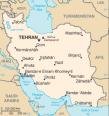 Check back soon for posts on the following topics (or click on links for existing posts):
Check back soon for posts on the following topics (or click on links for existing posts):- Serving the People of Iraq and Iran
- A Glimpse of Iran: People vs. Regime
- The Guantanamo Irony
- Who is Ayatollah Sistani?
- Liars Lair: Hussein, Khomeini, Castro, Hitler, and Much, Much More!!!
- Mahmoud and Jesse are Crazy
- Halliburton, Halliburton!
Click the "Read More" link for a preview of each of these posts. And feel free to give constructive advice and insight or destructive criticism on any and all of these subjects.
- Serving the People of Iraq and Iran - Because the futures of the people of Iraq and Iran are becoming fatefully more intertwined, I am in the process of changing the name of my blog. The people of Iran are looking for the same freedoms that we are trying to bring to Iraq. Because of this, Mahmoud Acrazynejad is calling for a showdown with the United States.
- A Glimpse of Iran: People vs Regime - The people of Iran who are older than about age 30 have a good memory of what it is like to be reasonably free under the regime of the Shah. They didn't like some of what he stood for, but they did not bargain for how much worse it could be. The current Iran Regime has created (and for 27 years developed) its own monstrous brand of Islamic Fundamentalism to hide its own shortcomings--and its own people are the guinea pigs.
- The Guantanamo Irony - Time, Newsweek, and other media outlets have been very quick to report American abuses at Guantanamo Bay, even when in most cases the reported abuses didn't actually occur. But what about the actual, verifiable abuses by the Fidel Castro regime on the very same island? I guess they'll take a pass on that one.
- Who is Ayatollah Sistani? - An Iraqi born in Iran, Sistani is a very quiet and somewhat enigmatic individual. Sistani's theology is diametrically opposed to the counterfeit Shia' Islam coming out of Iran. Is Sistani helping or hindering the march toward liberty in Iraq?
- Liar's Lair: Hussein, Khomeini, Castro, Hitler, and Much , Much, More!!! - In this post I will demonstrate two traits that all modern dictators share--the penchant for lying to their people to gain popularity, and the vicious violence they use to maintain their power.
- Mahmoud and Jesse are Crazy - Is Mahmoud Ahmadinejad crazy? Yes, and Jesse Jackson is crazy, too. Each of them lives to be noticed. Each one lives for the opportunity to create entertainment value. Each of them is a perfect example of a demagogue--an individual so full of himself that he cannot think rationally--and thus fits the definition of the term 'crazy'.
- Halliburton, Halliburton! - Providing services to 150,000 American soldiers is no easy task. You need a large company to do it. And it's a war--the company stands to lose a lot of money. Halliburton has done a great job logistically from everything I've seen.
- News From the Non-Conformist Media - An ongoing series (Ticker: NFNcM) devoted to sleuthing to discover those news media who can get it right about what's going on here in Iraq.













